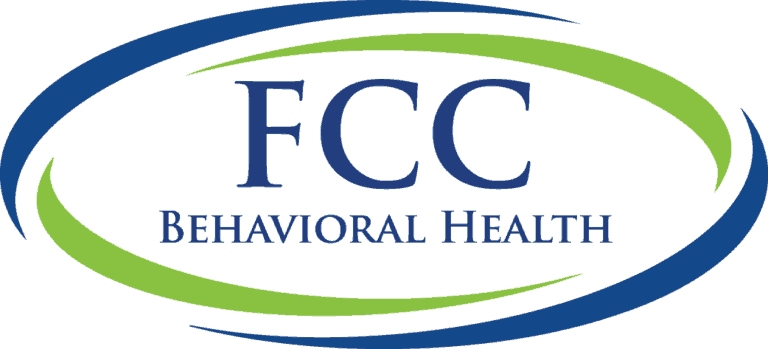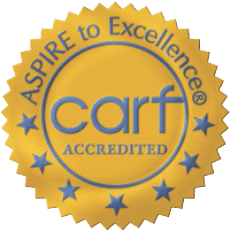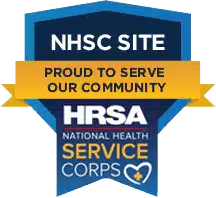Assessment
The assessment process includes a variety of assessment and screening tools used to help the diagnostician determine medical necessity and recommendations for treatment. Information is gathered from the client, the family, a review of records, and collateral sources. Assessments are conducted with respect to the youth or adolescent’s age, development, culture, and education. The process determines qualification for services and identifies personalized treatment goals and expectations for services.
Community support
The Youth Community Psychiatric Rehab Center (CPRC) Program works with youths, adolescents, and their families to help develop skills, access resources, and learn to manage illness in order to be successful at home, at school, and in the community. Services are provided by a qualified Care Coordinator (CC) who teach, model, and practice skills with youths and adolescents in order to increase self-sufficiency and independence. CC’s have a working knowledge of health care, social services, employment, safe housing, recreational opportunities, transportation and other services and systems available in the community. CC’s also provide educational services regarding various daily living skills such as budgeting, meal planning and personal care. Services are provided in any setting that allows the best access to services.
Crisis Services
Crisis services are available 24/7. A crisis therapist provides crisis intervention and stabilization services to address immediate needs and ensure safety for both the individual and the community.
Family Support
Family Support services are family-centered with a resiliency focus. Services allow caregivers the opportunity to direct their child or adolescent’s recovery and advocacy processes. Family support promotes skills for coping with and managing symptoms while encouraging the use of natural supports and enhancement of community living skills. Services are provided by a Certified Missouri Family Support Specialist.
Family Therapy
Youths, adolescents, and their families can meet with a Clinical Therapist for family therapy. Sessions are planned, face-to-face, goal-oriented therapeutic interactions with a qualified staff member in accordance with a person-centered care plan. Throughout the course of treatment, the clinical therapist monitors the family and meets with the clinical treatment team regularly to ensure the client and family is receiving the most effective treatment available.
Group Therapy
Group therapy involves a Clinical Therapist who leads a group of 5 to 15 individuals. Group therapy sessions are available to target a specific problem, such as depression, panic disorder, social anxiety, or substance use.
HealthCare Home (HCH)
The goal of HealthCare Home is to take a “whole person” approach in providing health and wellness education, assuring members receive needed preventative and primary care, in assuring members with chronic physical conditions receive the medical care they need, and assisting them in managing their chronic illnesses and accessing needed community and social supports.
Individual Therapy
Youths or adolescents can meet with a Clinical Therapist for individual therapy. Sessions are planned, face-to-face, goal-oriented therapeutic interactions with a qualified staff member in accordance with a person-centered care plan. Throughout the course of treatment, the clinical therapist monitors the youth or adolescent and meets with the clinical treatment team regularly to ensure the client is receiving the most effective treatment available.
Various treatment modalities are provided by appropriately trained staff to include but not limited to: Motivational Interviewing, Cognitive Behavioral Therapy (CBT), Eye Movement Desensitization and Reprocessing (EMDR), Play Therapy, and Trauma-Focused Cognitive Behavioral Therapy (TF-CBT).
Nursing
Nursing services are provided to monitor the health and wellness of youths and adolescents to include coordination of pharmaceutical services, medication education, medication efficacy, health education, and preventive education.
Outpatient Substance Use Disorders (SUD)
Youth with a substance use disorder can access Outpatient SUD services, which include individual therapy, group therapy, group education, and case management.
Psychiatry
Psychiatry services are routinely scheduled at 1 to 2-month intervals with urgent appointments available every day, if needed. All psychiatrists are board certified and supervise all work of the psychiatric nurse practitioners (PMHNP). Psychiatrists/PMHNP’s assume the responsibility for the medication aspects of mental health care, including: Psychiatric evaluations, medication management, review of complex cases where physical and mental health issues intersect, organicity, seizure disorders, psychosomatic disorders, and other medical and psychiatric related disorders. Psychiatry service appointments can be scheduled face-to-face or via telehealth.
Psychosocial Rehabilitation Group
Psychosocial Rehabilitation (PSR) Groups are for youths and adolescents that can benefit from additional support services. The activities of the PSR Program focus on the development of behaviors and abilities that will allow the youth or adolescent to return to activities that are age appropriate and based on assessed need; prevention of extended hospitalizations; establish and improve an adolescent’s desire or motivation to maximize independence; development of a personal support system and provision of meaningful activity which is appropriate to the age and interest of the person(s)-youth or adolescent.
PSR Groups use 2 evidence-based curricula broken down by grade and a progress monitoring tool to ensure that clients are getting the most beneficial programming available. The curricula include the Too Good for Drugs/Too Good for Violence curricula and the Second Step curricula. Progress Monitoring is provided by Social Skills Improvement System for Social-Emotional Learning (SSIS-SEL).
School-Based Services
School based services are available at several area schools. Psychosocial Rehabilitation (PSR) Group, Community Support, and Therapy are provided on campus during the school day. Please contact the PSR Coordinator to find out if your school district is participating in services.



